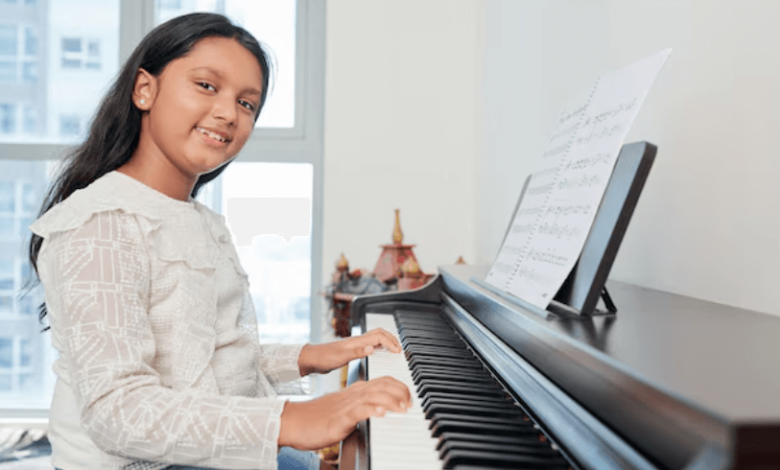Choosing the Right Instrument for Every Musician

Selecting the perfect instrument is a crucial step for both aspiring and professional musicians. The type of piano you choose can greatly influence your learning experience, performance quality, and overall enjoyment. Modern advancements in music instruments have expanded options, making it easier to find an instrument that fits your needs and skill level.
Key Factors to Consider When Selecting a Piano
Before purchasing any piano, it is important to evaluate several key factors:
- Skill Level: Beginners may prefer instruments with simpler features, while professionals often need a full set of weighted keys and advanced sound options.
- Budget: Setting a realistic budget ensures you balance quality and affordability. Investing in a durable instrument can save money in the long term.
- Space and Portability: Consider where the instrument will be placed and if portability is important. Digital pianos offer compact solutions without sacrificing key features.
- Purpose: Determine whether the piano is intended for casual practice, professional recordings, or live performances.
Careful consideration of these aspects helps ensure that the selected instrument meets both current and future needs.
See also: Why More Students Are Choosing Higher Education Institutes with Buddhist Foundations
Acoustic vs Digital Instruments
Choosing between an acoustic and digital piano is one of the first decisions musicians face:
- Acoustic Pianos: Known for their rich tone and dynamic responsiveness, acoustic pianos are preferred by many professionals. They require regular tuning and maintenance, which can be costly.
- Digital Pianos: These instruments provide versatility, portability, and a variety of sounds. They often include features like recording, connectivity, and volume control, making them suitable for home practice and smaller performance spaces.
Understanding the differences allows musicians to select an instrument that aligns with their lifestyle and musical goals.
Evaluating Key Features
When browsing options, pay attention to the following features:
- Key Sensitivity: Weighted keys provide a realistic feel, mimicking the touch of an acoustic piano.
- Sound Variety: Modern instruments offer multiple sounds and effects, expanding creative possibilities.
- Connectivity: USB and Bluetooth options allow connection to devices, apps, and recording software.
- Durability: Build quality impacts the longevity of the instrument, especially with frequent use.
These features enhance both learning and performance experiences.
Tips for Making an Informed Purchase
Purchasing an instrument can be overwhelming, but these tips help simplify the process:
- Research Thoroughly: Compare models, read reviews, and explore product demos online.
- Test in Person: Whenever possible, play the instrument to assess comfort, key response, and sound quality.
- Check Warranty: Ensure the instrument comes with coverage for repairs or replacements.
- Consider Resale Value: High-quality instruments often retain value better, which can be useful if you plan to upgrade later.
A strategic approach ensures you invest in an instrument that will serve your needs for years to come.
Learning and Practice Resources
Modern instruments are often complemented by digital tools and learning resources:
- Interactive Lessons: Platforms offer tutorials that adjust to your progress, making practice more structured and effective.
- Recording and Playback: Review your practice sessions to identify areas for improvement.
- Apps and Software: Gamified exercises and rhythm trainers keep practice engaging and track progress.
- Community Support: Online forums and social groups connect learners for guidance, collaboration, and feedback.
Leveraging these resources accelerates learning and enhances overall musical development.
Common Mistakes to Avoid
Musicians should be aware of common pitfalls to ensure a satisfactory purchase:
- Overlooking Specifications: Pay attention to key count, key action, and sound quality to avoid regrets.
- Focusing Only on Price: Extremely low-priced instruments may compromise quality and durability.
- Ignoring Reviews: Customer feedback often highlights hidden issues or strengths.
- Neglecting Maintenance: Proper care and cleaning extend the lifespan of the instrument.
Being mindful of these factors best piano ensures a smoother experience with your chosen instrument.
Maintenance and Care Guidelines
Proper care is essential to maintain performance:
- Regular Cleaning: Dust and debris can affect keys and sound.
- Environmental Control: Keep instruments away from humidity, extreme temperatures, and direct sunlight.
- Software Updates: For digital pianos, ensure firmware and connected apps are up to date.
- Gentle Handling: Avoid strong impacts and transport carefully to prevent damage.
Maintaining the instrument properly ensures consistent performance and longevity.
Exploring Advanced Features
For musicians seeking enhanced performance and creativity, advanced features are worth considering:
- Layered Sounds: Combine multiple instrument sounds to create richer compositions.
- MIDI Capabilities: Connect to computers for recording, composition, and virtual performances.
- Metronome and Rhythm Functions: Aid in maintaining timing and improving practice quality.
- Recording and Playback: Review performances to refine technique and musicality.
These features can transform practice sessions into more productive and creative experiences.
Conclusion
Selecting the best piano is a blend of personal preference, practical considerations, and careful research. By evaluating skill level, space, budget, and desired features, musicians can find an instrument that meets their needs. Utilizing modern learning tools and maintaining the instrument properly ensures a fulfilling musical journey. Whether for beginners or seasoned performers, the right piano serves as both a creative outlet and a tool for growth, enriching the overall experience of music.





